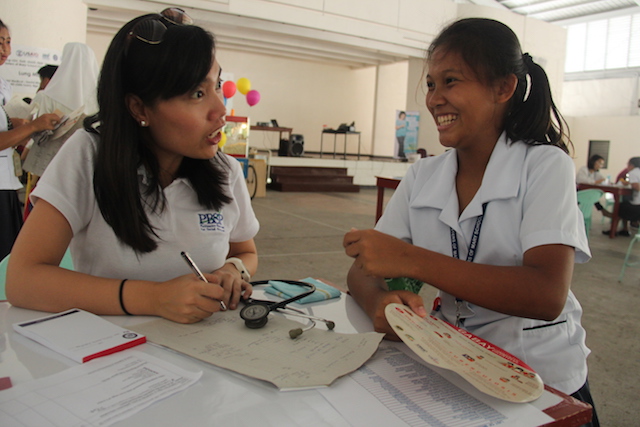For a healthier workforce

Companies attend PBSP’s iFLY workshop on workplace health
Modern-day living requires a lot to ensure that families live conveniently. In their desire to provide the needs as well as the wants of the household, employees work double effort to the point that most of them no longer give enough attention on their health.
To relieve stress from work, some would even resort to alcohol consumption and cigarette smoking which put them at greater risk of getting sick. That’s why it’s no surprise that lifestyle-related diseases remain on the top ten causes of death among Filipinos.
The Department of Health (DOH) reported that vascular system diseases, respiratory system diseases, diabetes mellitus, and heart diseases, which can all be attributed to unhealthy lifestyles, kill more Filipinos compared to other illnesses. This pushed various groups to formulate programs to help alleviate this alarming concern.
In 2012, the World Health organization launched the iFLY Program “Keep Fit, Live Well, Stay Young,” to promote a healthy change in the workplace, and address specific health risks and conditions that affect the health and productivity of workers. WHO tapped Philippine Business for Social Progress, the largest business-led NGO, to strategically implement the program which primarily caters to private companies. Other partners include the International Labor Organization (ILO), United Nations Development Programme (UNDP), DOH, Occupational Safety and Health Center (OSHC), and the Joint United Nations Programme on HIV/AIDS (UNAIDS).
Recently, x-number HR personnel and Occupational Safety and Health officers from x-number companies gathered at the Nestlé Center in Rockwell, Makati for the NCR leg of this year’s run of iFLY.
“I think the entire world is realizing how the modern generation is not giving as much attention as it should. Because the iFLY Program is very structured and practical, it makes it easy for those who attended to start our own program because there is a map to guide us,” said Freda Linda Lupac, Nestlé Corporate Human Resources Assistant Vice President.
STRATEGIC AND CLEAR
The program harnesses the CHANGE communication strategy, developed in collaboration with the United Nations and other national partners. This strategy encourages workers to drop harmful habits and adopt a healthier lifestyle. CHANGE stands for C-Cigarette smoking; H-HIV and AIDS, and STIs; A-Alcohol; N-Nasal and Lung Ailments; G-Good Nutrition and Exercise; and E-Exclusive Breastfeeding and Good Maternal and Child Care Practices.
Proper implementation of this strategy may help prevent serious health emergencies like what Efren Alcantara, SR Associate of Welding Industry of the Philippines encountered in their factory.
He shared, “One of our employees suffered stroke while working so we rushed him from the factory to the hospital and monitored him closely because his case was really serious since there was aneurism. He already recovered but we continue to monitor him until now and we no longer allow him to work overtime.”
Alcantara said that iFLY gave him clear ideas on how to frame a specific and accurate health program for their company in a way that will be a win-win solution for the employees and the employer. He added that the training also helped him debunk misconceptions about some health care issues.
“One of the most useful things I learned is about the Direct Observed Treatment Short-course (DOTS) strategy of treating tuberculosis (TB). My impression with DOTS was that it’s only for the indigents but I found out that we can also refer our TB positive employees to DOTS centers to get the best treatment,” he said.
Similar events were also held in Cebu and Davao by PBSP’s regional centers. Cañete urge other companies to take part in this initiative and help shape healthier workplaces for employees.


